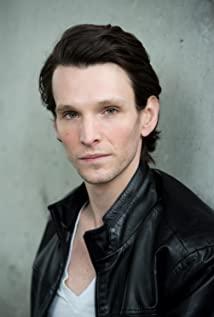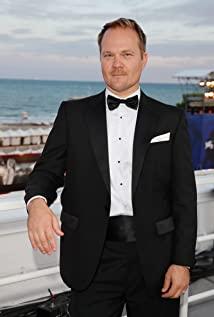[Watching the EU Film Festival] As one of the leading directors of the Romanian New Wave, Cornelius Bolamboyu has always been favored by Cannes. Since his first contact with Cannes in 2004, his short film "City Trip" won the Cornerstone Award. Second place; if it was just a lucky start, what followed was heralding his path to success. His debut film "Bucharest East 12:8" was shortlisted in the "Un Certain Regard" category in 2006 and won the Golden Camera Award for Best Debut Film; three years later "Police, Adjective" won the "Un Certain Regard" category Jury Prize. Perhaps his work style has always been biased towards stern satire and dry humor, so he has not been able to reach the peak of the international film industry as quickly as his other two companions. Holding the Palme d'Or, Kristi Puyo also gained widespread attention with a "Reliable Doctor".
Huangtian pays off, his new work "Island of La La Gomera" this year finally broke his fate and was shortlisted in the main competition unit of Cannes for the first time to compete for the Palme d'Or. Surprisingly, this is a large production with a commercial flavor, from Romania to the Canary Islands to Singapore, this round-the-world trip not only broadens the director's resume, but also allows the audience to see the boldness of Romanian New Wave directors. transformation. Although it is a noir movie with the theme of police and bandits, the director still did not give up infiltrating political metaphors and excavating fun cinephile elements in the genre narrative.
The story is about a traitor wandering between the police and the criminal gang. He is a policeman himself, investigating a drug-laundering case. Previously, he went to La Gomera in the Canary Islands, Spain, to learn a special whistle so that he could work with gangsters to escape police surveillance and rescue members who were arrested when they fled with stolen money. The most prominent feature in the film is the whistle language, which is a real language invented by local indigenous peoples and was included in the Intangible Cultural Heritage of Humanity by the United Nations in 2009. It is a pity that this whistle does not occupy much weight in the narrative. At least in the process of the police and criminal wits, the role of this language is limited to creating spectacles and gimmicks, triggering Romanian-style embarrassing jokes, such as The protagonist must rely on swimming to strengthen his lungs to learn this unique whistle.
Although its role in narrative is not very obvious, the symbolic meaning of this whistle is extremely prominent, and it is obviously a symbol of breaking through totalitarian rule. Due to his special status, the protagonist in the film is in a living environment where he is ubiquitously monitored by police bosses. It is impossible not to think of the government's surveillance of the people in the former Eastern Europe. People who succumbed to power dare not speak up. Only by whistling like birdsong can they communicate with each other and break the shackles of totalitarian rule. This bold and imaginative approach makes this film noir break through the original genre pattern and extend a wide range of political meanings, which is also a continuation of the indispensable political and social criticism in Bo LanBoyu's past works, but It is more hidden here.
In addition, the director's cinephile complex is as strong as ever, from the western "Searcher" to Hitchcock's "Psycho" bathroom murder scene, and the Romanian old-fashioned police and gangster films played on TV, all of them are for this black The genre films have left intriguing footnotes, and the climax of the film is even more arranging to be displayed in an abandoned movie set, so that this kind of mind-blowing cinephile factor is subtly integrated into the narrative, which makes people addicted.
However, as a newcomer to genre films for the first time, Bo Lan Boyu's black police and bandit film is too experimental and mixed, the narrative method is too laborious, naming chapters with characters' names, constantly changing perspectives, full of sense of separation, and deliberately reversing the order of time and space , disrupting the linear narrative and concocting a full sense of form, but it is difficult to attract the audience. Equally ostentatious is the soundtrack, where the flooded opera excerpts are so loud in some scenes that it looks like the work of a new director. The appearance of many supporting roles is confusing, weakening the expression of the main line and making the sense of rhythm confusing. Despite the shortcomings in various aspects, this is a fresh attempt for Bo Lanboyu, and he still expects his next work to bring more surprises to the audience.
View more about The Whistlers reviews











